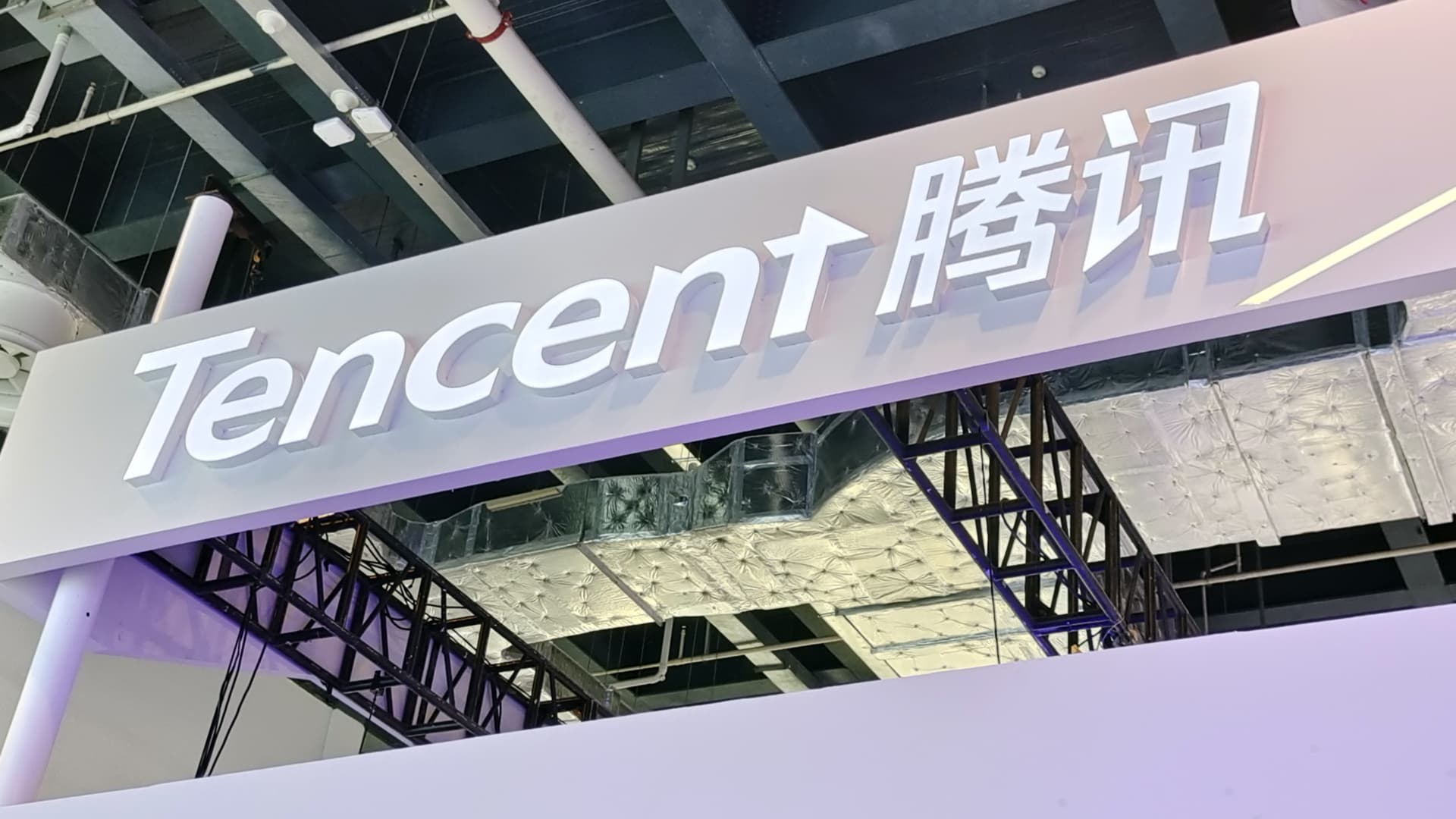Renowned Chinese tech titan Tencent is poised to unveil its highly-anticipated artificial intelligence model, “Hunyuan,” specially tailored for business applications, at an exclusive summit on Thursday. Dowson Tong, CEO of Tencent’s cloud and smart industries group, provided details in an interview with CNBC ahead of the event.
This latest revelation comes in the wake of fellow tech giant Baidu‘s announcement earlier this week about their range of AI-powered applications, spurred by more favorable regulations in the industry.
Tencent has conducted extensive internal testing of its Hunyuan AI model on advertising and fintech. Additionally, the company is set to launch an AI chatbot on Thursday, as confirmed in an online post.
CNBC was informed by Tong that Tencent is integrating Hunyuan’s capabilities with their existing products for video conferencing and social media, such as WeChat and Tencent Meeting.

Recently, Baidu and several other Chinese companies have obtained regulatory approval to release AI-powered chatbots to the public. These innovative bots, similar to ChatGPT, are designed to respond to user queries using human-like conversation, primarily in Chinese. Some, like Baidu’s Ernie bot, even incorporate features that convert text to images and videos.
It is worth noting that OpenAI’s ChatGPT is not currently accessible in China. This wave of chatbot releases follows new Chinese regulations on generative AI that went into effect on August 15.
When questioned about the impact of these regulations, Tong emphasized that the novelty of artificial intelligence makes it difficult to anticipate its societal consequences.
“Implementing precautionary measures is important,” he said. This ensures that the technology or services provided meet high standards and avoid disseminating false information.
The Chinese authorities have stated that the “interim” rules, effective as of last month, do not apply to companies developing AI technologies as long as those products are not available to the general public.
These regulations are less stringent than the draft released in April, which included provisions applicable even during the research phase.
Development Constraints
Though Beijing has demonstrated greater support for generative AI than initially anticipated, Chinese companies still encounter restrictions imposed by the United States when it comes to acquiring advanced semiconductors. These cutting-edge chips, known as graphics processing units (GPUs), are vital for training AI models.
Tong acknowledged that these constraints hinder progress and slow down development due to the shortage of computing power in China. To overcome this challenge, companies are focusing on specific use cases and building models of appropriate sizes.
He added: “We hope that the supply of GPU compute will increase in the coming months, thereby accelerating the development of these technologies.”
AI for Business
Tencent is just one of many Chinese companies, including startups and phone manufacturer Huawei, that have unveiled and launched AI products this year. Alibaba, in particular, announced in August that it is opening its own AI model to third-party developers.
Tong stated that successful utilization of artificial intelligence requires industry-specific training to maximize its potential value. He cited tourism, finance, public services, and customer service as prime examples of sectors that stand to benefit from tailored AI models, built using open-source frameworks and enterprise data.
Tong further emphasized that this customized approach helps safeguard data and protect user privacy.
Denial of responsibility! Vigour Times is an automatic aggregator of Global media. In each content, the hyperlink to the primary source is specified. All trademarks belong to their rightful owners, and all materials to their authors. For any complaint, please reach us at – [email protected]. We will take necessary action within 24 hours.



